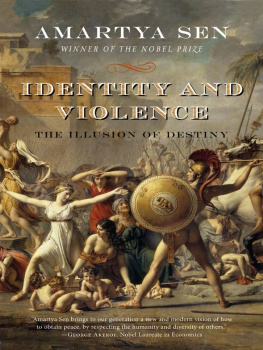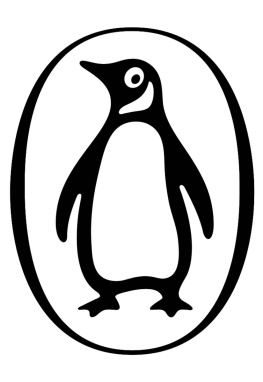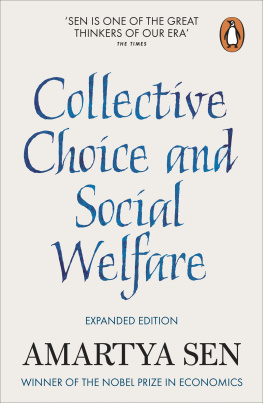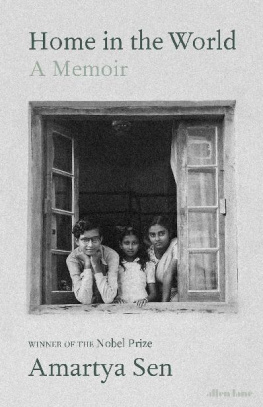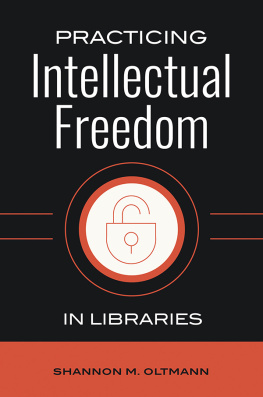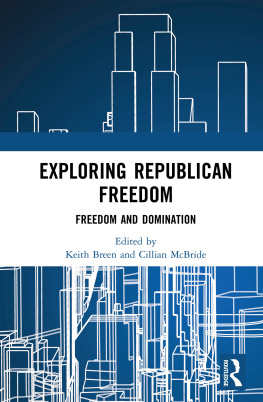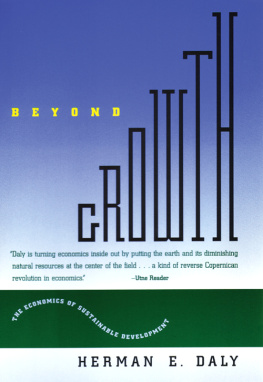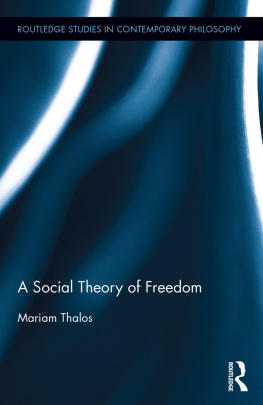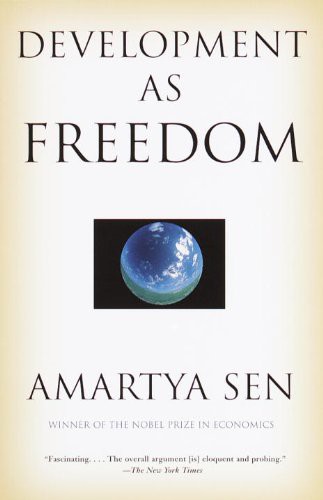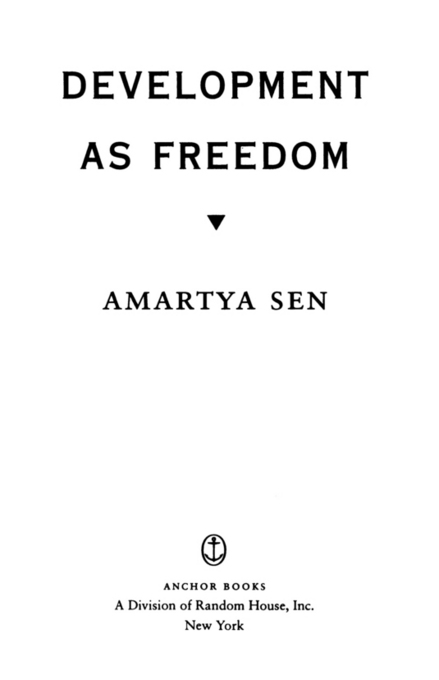Acclaim forAMARTYA SENand
DEVELOPMENT AS FREEDOM
Indispensable. Informed, insightful, compassionate and optimistic.
The Nation
Remarkable. The overall argumentthat freedom is the principal goal and purpose of developmentgets full elaboration here. This is a book that rewards a readers effort, not least for the calm, practical wisdom Mr. Sen brings to difficult subjects. Eloquent and probing.
The New York Times
[Sen] proposes a theory of global economic development that is powerful, grand, and eloquently simple at the same time. An exhilarating work by one of the great masters of the social sciences.
The Boston Book Review
Development as Freedom turns decades of economics on its head. Readable and enjoyable by a wide audience. Development as Freedom is a classic in its own time.
The Toronto Globe and Mail
It is hard to disagree with Sen. Together [his arguments] constitute a useful corrective to the conventional wisdom, and should feature increasingly in current debate.
Financial Times
Unlike most Nobel Prize-winning economists, Sen has focused on the well-being of those at the bottom of society, not the efficiency of those at the top.
Chicago Tribune
Amartya Sen harks back to the older and richer tradition of evaluating the considerations of economic efficiencywhich dominate most modern economic analyseswith respect to their general social consequences. His thesis has radical implications.
Foreign Affairs
[Development as Freedom] exudes a refreshing reasonableness and a willingness to acknowledge rival points of view.
The Atlantic Monthly
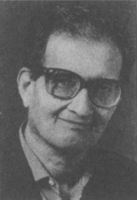
AMARTYA SEN
DEVELOPMENT AS FREEDOM
Amartya Sen is the Master of Trinity College, Cambridge, and the winner of the 1998 Nobel Prize in Economic Science.
Also by AMARTYA SEN
Collective Choice and Social Welfare
On Economic Inequality
Employment, Technology and Development
Poverty and Famines:
An Essay on Entitlement and Deprivation
Choice, Welfare and Management
Resources, Values and Development
Commodities and Capabilities
The Standard of Living
On Ethics and Economics
Hunger and Public Action (with Jean Drze)
Inequality Reexamined
India: Economic Development
and Social Opportunity (with Jean Drze)
FIRST ANCHOR BOOKS EDITION, AUGUST 2000
Copyright 1999 by Amartya Sen
All rights reserved under International and Pan-American Copyright Conventions. Published in the United States by Anchor Books, a division of Random House, Inc., New York, and simultaneously in Canada by Random House of Canada Limited, Toronto. Originally published in hardcover in the United States by Alfred A. Knopf, a division of Random House, Inc., New York, in 1999.
Anchor Books and colophon are registered trademarks of Random House, Inc.
Grateful acknowledgment is made to The New York Times for permission to reprint an excerpt from Birth Control in China by P. Tyler (The New York Times, June 25, 1995), copyright 1995 by the New York Times Co. Reprinted by permission.
Grateful acknowledgment is made to reprint previously published material: Bank of Italy: Excerpt from Inflation, Growth and Monetary Control: Non-linear Lessons from Crisis and Recovery by Michael Bruno, Paolo Baffi Lecture (Rome: 1996).
The Library of Congress has cataloged the Knopf edition as follows:
Sen, Amartya Kumar.
Development as freedom / Amartya Sen. 1st ed.
p. cm.
I. Economic development. 2. Liberty. I. Title.
HD75.S455 1999
330.01dc21 99-31061
eISBN: 978-0-307-87429-0
Author photograph by Kris Snibbe
Graphs by Mark Stein
www.anchorbooks.com
v3.1
To Emma
CONTENTS

ILLUSTRATIONS

Variations in Male Survival Rates by Region
Variations in Female Survival Rates by Region
GNP per Capita (U.S. Dollars) and Life Expectancy at Birth, 1994
Improvements in Life Expectancy in England and Wales, 19011960
Growth of GDP (U.K.) and Decadal Increases in Life Expectancy at Birth (England and Wales), 19011960
Mortality Rate Ratios of Blacks to Whites (Aged 3554), Actual and Adjusted for Family Income
Female-Male Ratios in Total Population in Selected Communities
Food Grains Availability in Bangladesh, 19711975
Food Prices in Constant 1990 U.S. Dollars
India and Sub-Saharan Africa: Selected Comparisons (1991)
Indices of Food Production per Head by Regions
Food Prices in Constant 1990 U.S. Dollars: 19501952 to 19951997
PREFACE

We live in a world of unprecedented opulence, of a kind that would have been hard even to imagine a century or two ago. There have also been remarkable changes beyond the economic sphere. The twentieth century has established democratic and participatory governance as the preeminent model of political organization. Concepts of human rights and political liberty are now very much a part of the prevailing rhetoric. People live much longer, on the average, than ever before. Also, the different regions of the globe are now more closely linked than they have ever been. This is so not only in the fields of trade, commerce and communication, but also in terms of interactive ideas and ideals.
And yet we also live in a world with remarkable deprivation, destitution and oppression. There are many new problems as well as old ones, including persistence of poverty and unfulfilled elementary needs, occurrence of famines and widespread hunger, violation of elementary political freedoms as well as of basic liberties, extensive neglect of the interests and agency of women, and worsening threats to our environment and to the sustainability of our economic and social lives. Many of these deprivations can be observed, in one form or another, in rich countries as well as poor ones.
Overcoming these problems is a central part of the exercise of development. We have to recognize, it is argued here, the role of freedoms of different kinds in countering these afflictions. Indeed, individual agency is, ultimately, central to addressing these deprivations. On the other hand, the freedom of agency that we individually have is inescapably qualified and constrained by the social, political and economic opportunities that are available to us. There is a deep complementarity between individual agency and social arrangements. It is important to give simultaneous recognition to the centrality of individual freedom and to the force of social influences on the extent and reach of individual freedom. To counter the problems that we face, we have to see individual freedom as a social commitment. This is the basic approach that this work tries to explore and examine.


